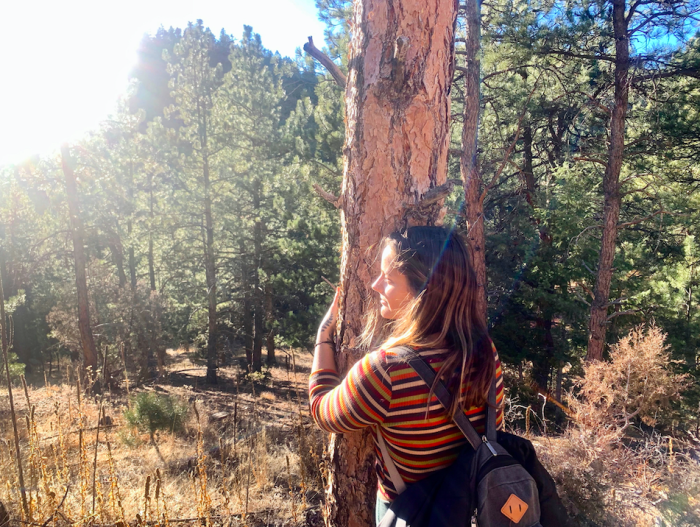Ah, trees.
Magical. Mysterious. Sacred. Sappy. Crooked. Straight. Divine. Lonely. Loved. Friendly. Strong. Tall. Short. Soft. Rough. Holy. Bountiful. Beautiful. Being.
These are (some of) the words that come to my mind when I think of trees. They’re not much different than the words I think of when I think of you and me. We’re all different, but the same. We’re all beautiful in our own ways. We’re all worthy of being seen like the way we see trees.
There are more than 60,000 types of trees in the world and I’d be surprised to learn if any of them were disliked. What is it about trees that allows us to unconditionally love every piece of jagged bark and twisted, misshapen limbs? And why have we forgotten that we—you and me—are no different from the trees?
Why do we simply allow trees to be the way trees are, but we forget to allow humans to be the way humans are?
It wasn’t until I first read this Ram Dass poem that I asked myself this question and began to truly transform the way I view humans:
“When you go out into the woods and you look at trees, you see all these different trees.
And some of them are bent, and some of them are straight, and some of them are evergreens, and some of them are whatever.
And you look at the tree and you allow it. You appreciate it. You see why it is the way it is.
You sort of understand that it didn’t get enough light, and so it turned that way.
And you don’t get all emotional about it. You just allow it. You appreciate the tree.
The minute you get near humans, you lose all that. And you are constantly saying, ‘You’re too this,’ or ‘I’m too this.’
That judging mind comes in. And so I practice turning people into trees.
Which means appreciating them just the way they are.”
And this is why I now also practice turning people into trees, including myself. Because we all deserve to be seen the way we see trees—and that’s as we are. There doesn’t need to be judgment or pity or even praise for how we look or what we do. All we need to do is appreciate—appreciate our humanness, appreciate our imperfections.
And just like we don’t ask a tree why they are the way they are, there’s no need to question why humans (including ourselves) are the way they are.
They just are. We just are.
And that is all.



Read 10 comments and reply